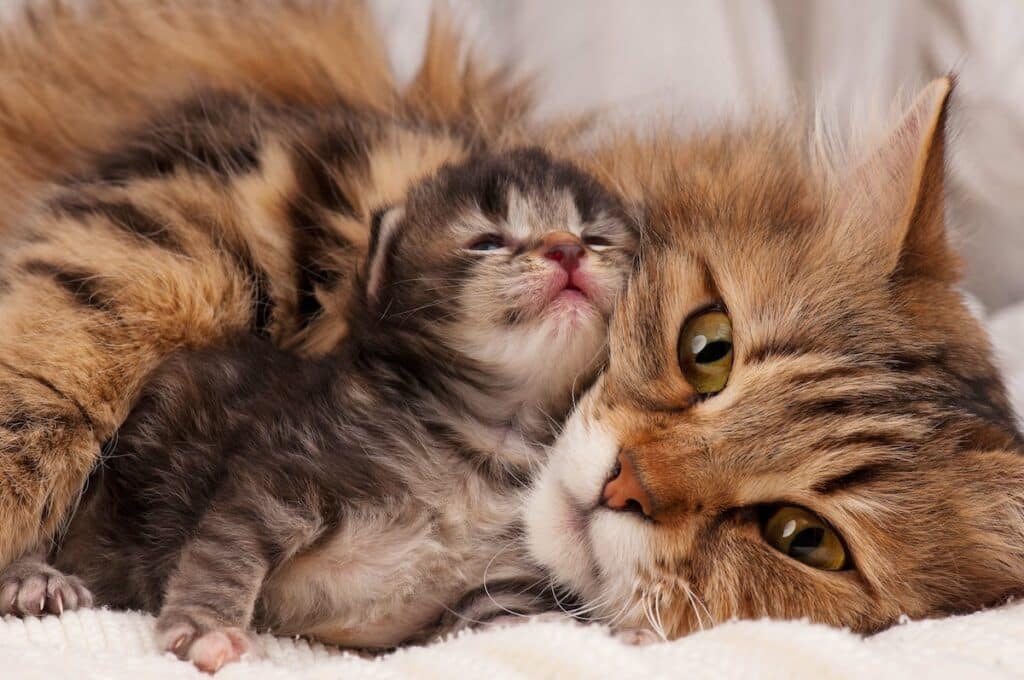The idea of a mother cat eating her own offspring might seem like a horrific concept to some, but it’s actually not as uncommon as you might think. In fact, it is a well-documented phenomenon in the animal kingdom. The reasons why cats may consume their young are varied and can range from instinctive behavior to medical issues. But what does science have to say about this behavior and how can you prevent it from happening?
What Causes a Cat Mom to Eat Her Babies?
There are a variety of reasons why a cat mom may consume her own offspring. The most common reason is due to instinct or “maternal instinct” as it is sometimes called. This behavior is seen in many species of animals and is thought to be an evolutionary adaptation that serves to protect the mother and her litter from predators. It is believed that by consuming the young, the mother is able to protect them from potential harm.
Another reason a mother cat may eat her young is due to a medical issue. If the mother is suffering from a condition such as toxoplasmosis or feline leukemia, it may cause her to become disoriented or confused, leading her to consume her own offspring. In some cases, a female cat may also become stressed and may consume her young if she is unable to care for them.
What Does Science Say About This Behavior?
While the exact reasons for a mother cat to consume her own young remain unclear, science has provided some insight into this behavior. Studies have shown that cats are capable of recognizing their own offspring and that this recognition is largely instinctive. This means that when a mother cat is presented with a litter of kittens, she is likely to recognize them as her own and may be prompted to protect them from potential threats.
The research also suggests that a mother cat’s instinct to consume her young is a survival mechanism. By consuming them, she is protecting them from potential danger and ensuring that they are not left vulnerable to predators. This instinct is thought to be an evolutionary adaptation that has been passed down through generations of cats.
How to Prevent a Cat Mom From Eating Her Babies
Unfortunately, there is no way to completely prevent a mother cat from consuming her young, as it is an instinctive behavior. However, there are some steps that you can take to reduce the likelihood of this occurring.
One of the best ways to reduce the risk of a mother cat eating her young is to ensure that she is in a safe and secure environment. This means that she should not be exposed to potential predators, such as other cats or dogs, and should not be placed in a stressful situation. Additionally, you should ensure that the mother cat is well-fed and hydrated, as this can reduce the chances of her becoming disoriented or confused.
If you suspect that the mother cat is suffering from a medical condition, such as toxoplasmosis or feline leukemia, it is important to seek veterinary assistance as soon as possible. Treatment for these conditions can help reduce the chances of the mother cat becoming disoriented or confused and thus reduce the risk of her consuming her young.
Conclusion
In conclusion, it is not uncommon for a mother cat to consume her own offspring. The reasons why this behavior occurs are varied and can range from instinctive behavior to medical issues. While it is not possible to completely prevent a mother cat from eating her young, there are some steps that you can take to reduce the likelihood of this occurring. By providing the mother cat with a safe and secure environment, ensuring that she is well-fed and hydrated, and seeking veterinary assistance for any medical issues, you can help reduce the risk of a mother cat consuming her young.














